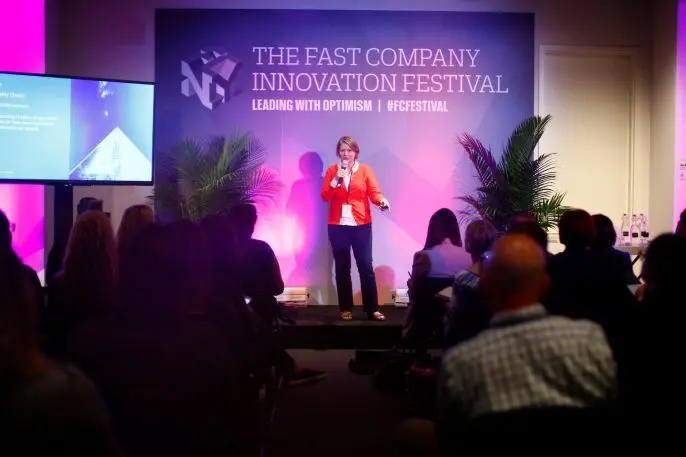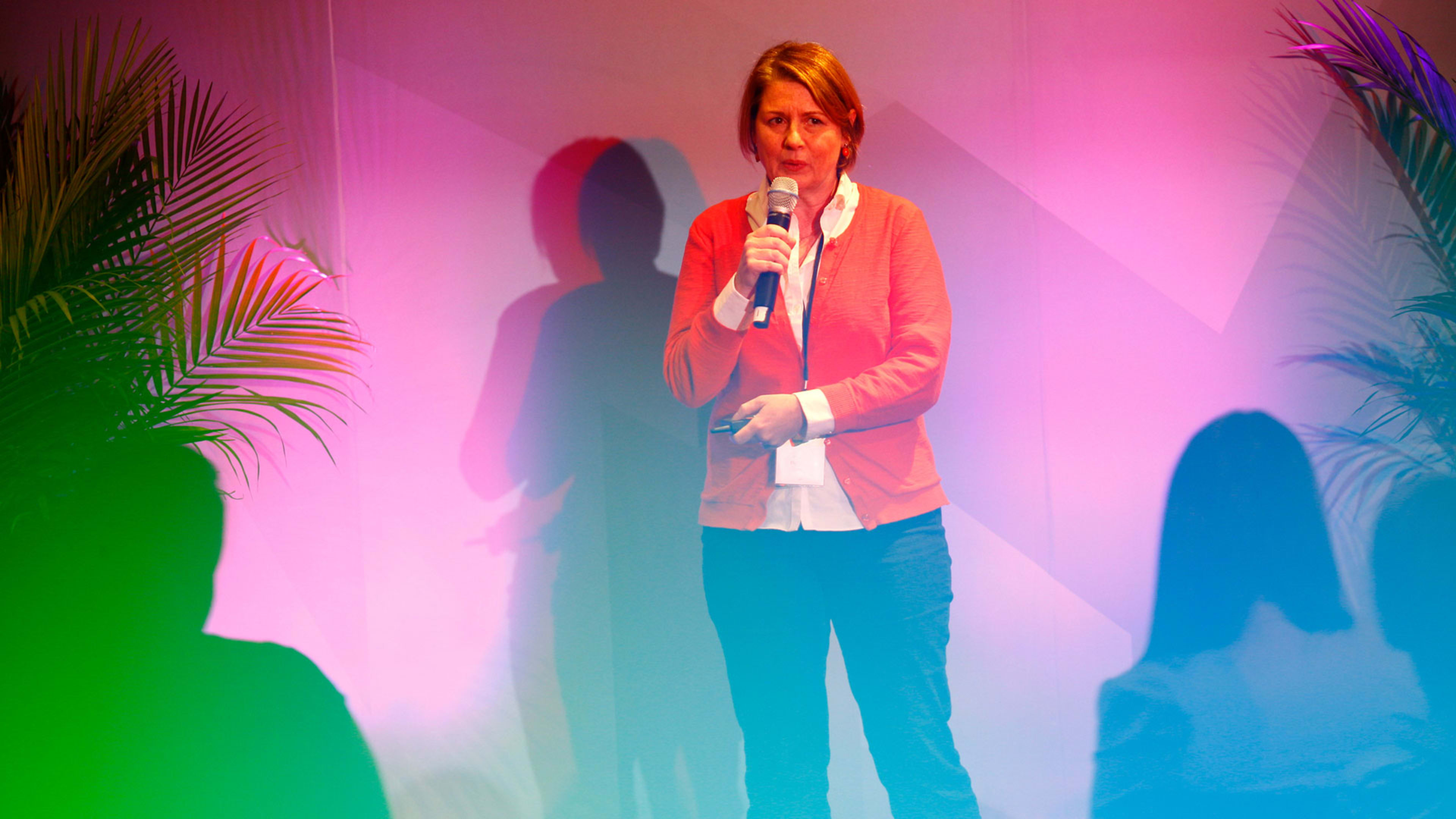Are you thinking of starting a podcast? When Public Radio Exchange (PRX) CEO Kerri Hoffmann posed the question to Fast Company Innovation Festival attendees this afternoon, the majority of hands in the room shot right up. And while it’s not the most scientific polling methodology in the world, it certainly feels representative of the general population–or at least among people in media and other creative industries. Practically everyone has an idea for a podcast these days–I know I certainly daydream about launching my own in my spare time. The question is: Should we?
Related: With RadioPublic, These Podcasting Pioneers Plan To Reinvent The Medium
It depends, in large part, on what you’re looking to achieve; A creative outlet? A way to promote your brand (personal or otherwise)? Fame? Fortune? Assuming your podcasting aspirations are worth pursuing, there’s a another, equally critical question to ask yourself: How will you pull it off?
As a public radio veteran and podcasting pioneer, Hoffmann knows a thing or two about the ins and outs about the evermore buzzy medium of audio storytelling. And fortunately for those of us curious to dabble, she’s got a few pointers.

1. Start With Empathy And Design Thinking, Not Ideas
You might think that the first step to creating a great podcast is having a really good idea. That’s not necessarily the case, says Hoffmann. “We start with empathy,” she says. “We don’t start with an idea. What do you have that your listener needs?”
“We use design thinking,” she adds, “which we’ve learned from building technology over many years, and applied it to content development. The question of how might we solve X problem.”
2. Figure Out Who Your Audience Is (And Make Your Show Relevant To Them)
Did you come up with an idea for a podcast that makes you really excited? Stop right there. It’s not about you; Why would other people want to listen to an episode? And more importantly, who are those people?
“You really have to switch your thinking and make it for your audience, not for you,” says Hoffmann. “The more talented and creative you are, the harder it is to make that switch. Understand who the audience is that you want.”
“It can be aspirational, but really try to understand why they would want your content,” she emphasizes. “Address what they need first.”

3. Get Feedback From Strangers, Not Friends
One of the hardest things about launching a podcast is growing the audience. One of the reasons for this is that, far too often, we gut-check our ideas and play our pilot episodes for friends and family. What we really need at this early stage of development is honest feedback.
“You actually need to go and talk to strangers,” says Hoffmann. To do this, PRX sends budding podcast producers out to the train station to find people to test new shows with.
4. Listen Voraciously (And Very Closely)
Just as good writers must read extensively, an aspiring podcaster should be well-versed in the best the medium has to offer. But when you put on headphones and click play, don’t think so much about mining others’ podcasts for story ideas, Hoffmann suggests.
“Listen for elements,” Hoffmann says. “Listen for the opening. Listen for the point of the narrative arc. Listen for how they end it. Listen for how they intro the concept early on. Break it down into the elements that you might want to replicate.”

5. Understand The Data (Warning: It’s A Mess)
“The first place to start is educating yourself on how the distribution works,” says Hoffmann. “It will just save you pain later on. ” This is a common hang-up among podcast beginners: Do I upload it to SoundCloud? How do I get it onto Apple Podcasts? What’s Stitcher? What’s an RSS feed?
Understanding podcast distribution is important to ensure your work gets heard, but it’s also the first step in another, very important process that will come once a show starts to take off: Understanding the data.
“We live in dashboard hell,” Hoffmann admits. “We have downloads over here and they give us one metric. Downloads over there and they give us another metric. People use the word ‘listen’ all the time for a download, which isn’t the same thing. Audio producers today need to be skilled in digital marketing and understanding what a download is over here, versus over there.”
6. Quality Matters More Than Your Killer Ideas
A new podcast can be brilliantly conceived, written, and executed. But the bar for quality is pretty high these days, so newcomers really need to do their homework when it comes to gear (especially microphones) and editing software and techniques. “Poor equipment means a poor podcast,” Hoffmann warns. “Quality is one of the differentiators to cut through the noise of the 450,000 podcasts out there. “
Recognize your brand’s excellence by applying to this year’s Brands That Matter Awards before the early-rate deadline, May 3.
